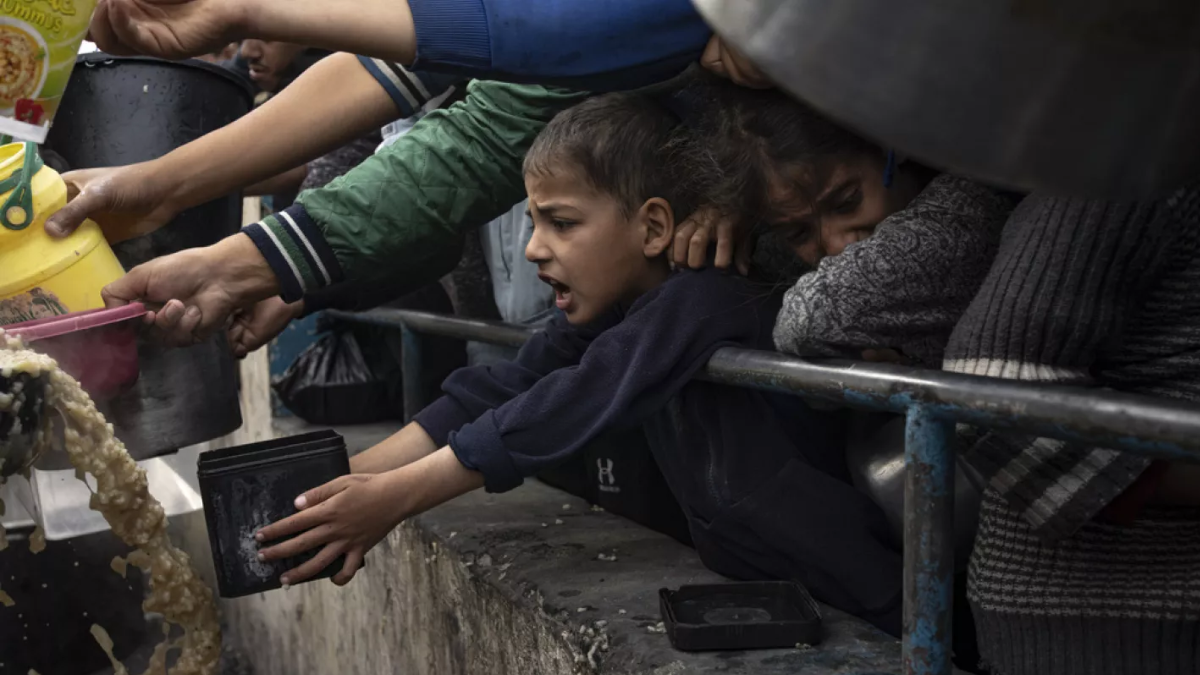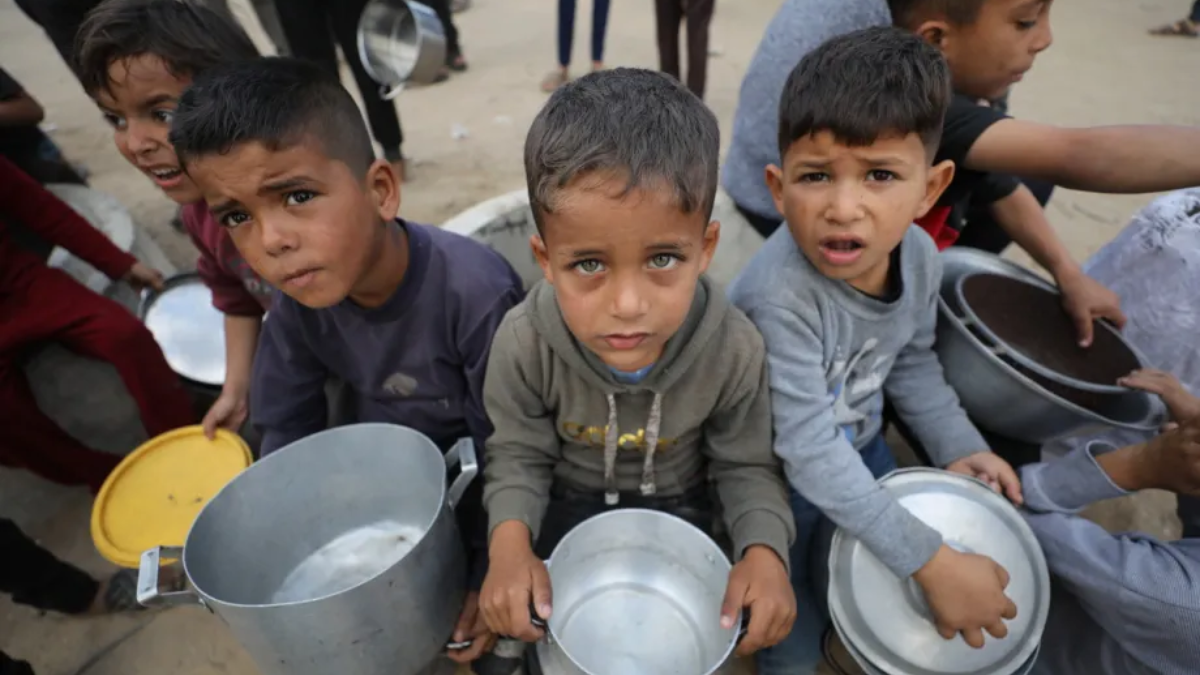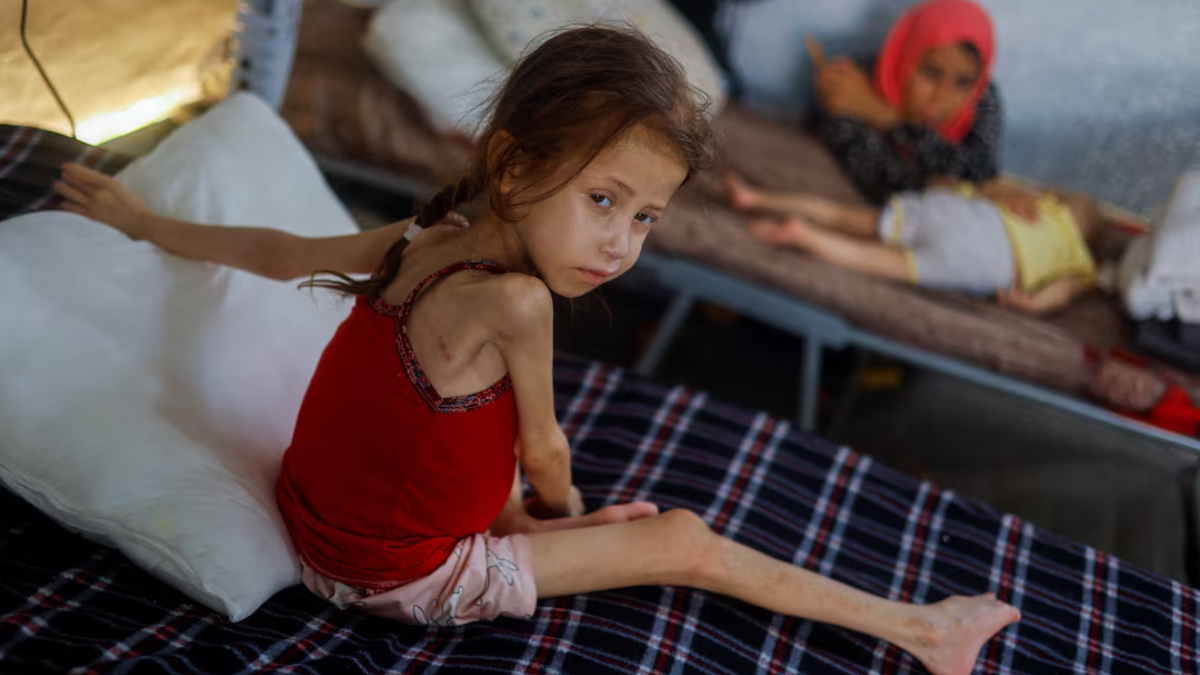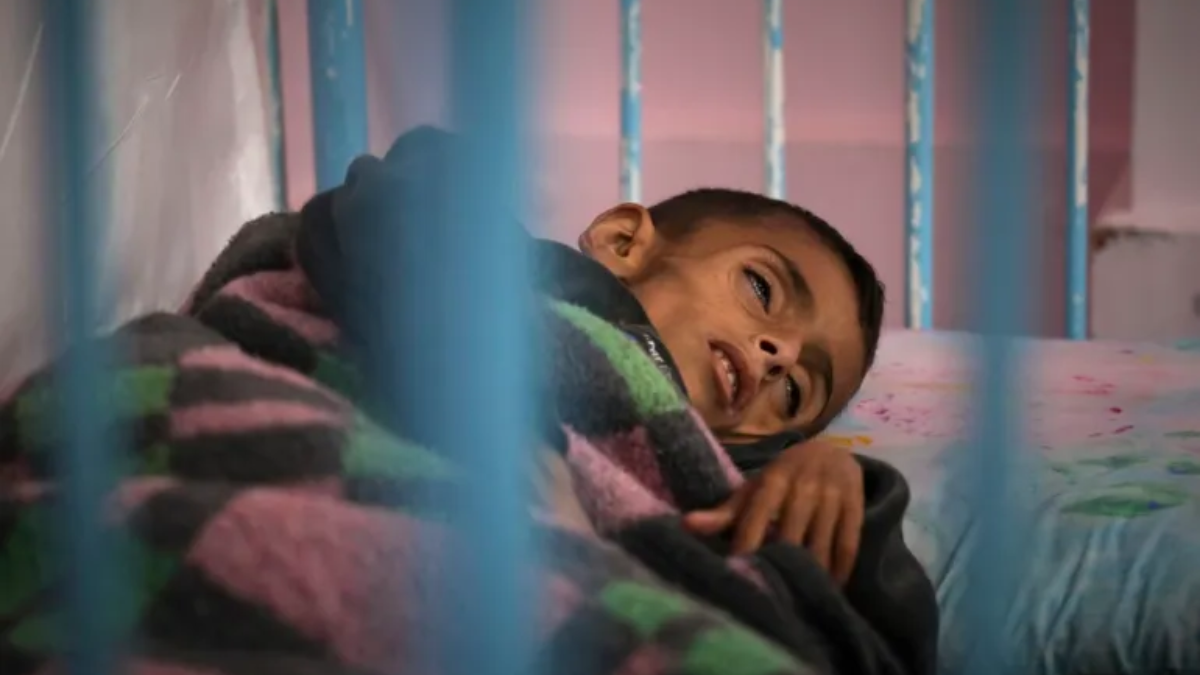
The Gaza Strip is grappling with one of the most severe hunger crises the world has seen in recent times. According to the World Health Organization (WHO), at least 57 children have died due to malnutrition since March 2, when humanitarian aid was effectively blocked from reaching the region. As Gaza’s 2.1 million residents struggle to survive, the UN warns that tens of thousands more, particularly children, could follow if immediate intervention is not made.
Table of Content:-
The scale of suffering, especially among vulnerable populations like the elderly, the injured, and pregnant women, has escalated rapidly. With no access to adequate nutrition, clean water, or essential medical supplies, Gaza is descending deeper into a humanitarian disaster.

Warnings of a Growing Crisis
WHO’s representative in the Occupied Palestinian Territory, Dr Rik Peeperkorn, has called the current situation "one of the world's worst hunger crises, unfolding in real time." The grim statistics speak volumes: nearly 500,000 people in Gaza are now living in catastrophic conditions, facing extreme hunger, disease, and the threat of death every single day.
Also Read: Congo Floods Claim Over 60 Lives As Cholera Spreads And Conflict Rages, Says UN
A recent food security report by the Integrated Food Security Phase Classification (IPC), a partnership that includes the WHO, underscores the severity. The report estimates that if the blockade and lack of access persist, nearly 71,000 children under five could die from acute malnourishment within the next year.

Aid Blockade and Systemic Collapse
Since the beginning of March, the deliberate blocking of humanitarian aid—food, medicine, and other vital resources—has exacerbated Gaza's fragile health and food infrastructure. WHO Director-General Dr Tedros Adhanom Ghebreyesus issued a stark statement: "We do not need to wait for a declaration of famine to know that people are already starving, sick, and dying."
Also Read: Texas Confirms First Measles Case In Dallas Amid Ongoing Outbreak
Despite supplies being available just minutes away across the border, bureaucratic and political barriers are preventing life-saving resources from reaching those in need. Dr Peeperkorn confirmed that WHO currently only has enough medical provisions in Gaza to treat 500 children suffering from acute malnutrition—a drop in the ocean compared to the urgent demand.
Long-Term Devastation Looms
The consequences of prolonged malnutrition go far beyond the immediate threat of death. Dr Peeperkorn warned that children who survive the crisis may still face irreversible damage. Malnutrition during crucial developmental years can lead to:
- Stunted physical growth
- Cognitive impairments
- Increased vulnerability to disease
This means that an entire generation in Gaza could suffer lifelong setbacks, from educational disadvantages to chronic health issues, unless rapid intervention is allowed and implemented.

The Call for Immediate Global Action
Humanitarian organisations and global health leaders are calling for immediate, unhindered access to Gaza to deliver critical food and medical aid. The WHO and the United Nations emphasise that famine is not just a looming possibility—it is a current, devastating reality for many in the region.
Unless there is a swift and coordinated global response, Gaza will continue to face escalating fatalities, a deepening health crisis, and long-lasting generational damage. The blockade has turned Gaza into a symbol of preventable tragedy, and the clock is ticking.
-1747636034831.png)
Bottomline
What is unfolding in Gaza is not just a health emergency—it is a moral one. The lives of thousands of children are hanging in the balance due to policies that restrict aid and cripple humanitarian efforts. If immediate steps are not taken to restore aid access and provide the essentials of survival, the death toll will only rise. The international community must act now to prevent a full-scale famine and ensure that no more innocent lives are lost to malnutrition.
Also watch this video
How we keep this article up to date:
We work with experts and keep a close eye on the latest in health and wellness. Whenever there is a new research or helpful information, we update our articles with accurate and useful advice.
Current Version